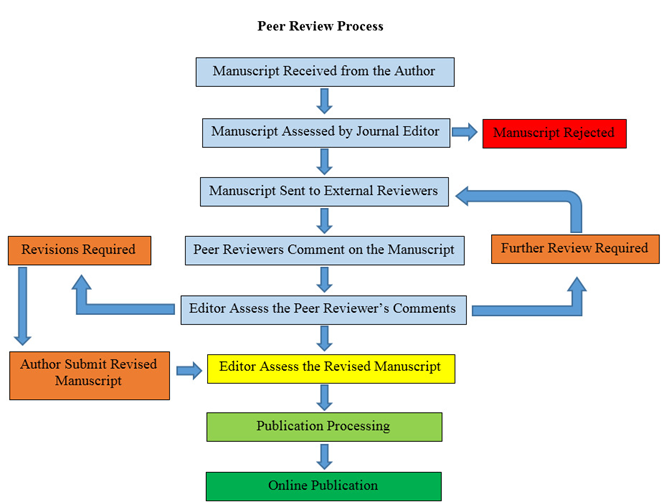Peer Review Policy
The Journal of International Business, Economics and Entrepreneurship (JIBE) implements a rigorous double-blind peer review process for all submitted manuscripts. Both authors’ and reviewers’ identities are kept confidential throughout the process to ensure objective, impartial and high-quality evaluation.
Initial Editorial Screening
All submissions undergo an initial assessment by the editorial team to verify that the manuscript:
- Falls within the journal’s scope and areas of interest;
- Complies with journal formatting and ethical guidelines;
- Demonstrates sufficient originality, relevance and scholarly quality.
Manuscripts failing to meet these basic criteria may be desk-rejected without external review.
Review Process Overview
Manuscripts that pass the initial screening are sent to at least two independent expert reviewers. The typical peer review process is completed within approximately three (3) months and consists of the following stages:
1. Editorial Appraisal by the Chief Editor
The Chief Editor evaluates the manuscript for:
- Structural compliance with the Guide for Authors;
- Organization, completeness, and language quality;
- Ethical declarations and originality;
- Relevance to the journal’s scope.
Manuscripts lacking clarity, originality or relevance may be rejected without external review.
2. Reviewer Selection and Invitation
- Reviewers are selected based on subject expertise, publication record and experience;
- Potential conflicts of interest are assessed and avoided;
- At least two reviewers are assigned per manuscript;
- The Chief Editor may consult the editorial board when assigning reviewers.
3. Reviewer Acceptance
Invited reviewers assess:
- Their ability to review the manuscript competently;
- Availability to complete the review within the journal’s timeline;
- Any conflicts of interest.
Declining reviewers may suggest qualified alternatives.
4. Review Execution
Reviewers conduct a thorough evaluation of the manuscript, covering:
- Theoretical and empirical contribution;
- Research design and methodology;
- Relevance, clarity, and originality of discussion;
- Citations and scholarly rigor.
Feedback is submitted confidentially via the journal’s online system and must be constructive, evidence-based and respectful.
5. Editorial Evaluation of Reviews
The Chief Editor reviews all reports and decides whether the manuscript should be:
- Accepted as is;
- Accepted with minor revisions;
- Returned for major revisions;
- Rejected.
In cases of conflicting recommendations, the Chief Editor may consult additional reviewers.
6. Decision Notification to Authors
Authors are informed of the editorial decision along with anonymous reviewer feedback and guidance for revisions, if applicable
7. Author Revisions and Resubmission
- Authors are given a deadline to address all reviewer comments and resubmit the manuscript;
- Revised manuscripts may be returned to the original reviewers for re-evaluation, depending on the extent of changes.
8. Final Decision and Production
Upon acceptance:
- The manuscript is forwarded to the production team for copyediting, proofreading and formatting;
- Authors receive page proofs for final approval before publication.
Reviewer Feedback Loop
- Reviewers are notified of the final editorial decision;
- Reviewers may receive the revised manuscript if they participate in a second round of review;
- Reviewer contributions are formally acknowledged and performance feedback may be provided to support future collaboration.
Commitment to Fair and Transparent Peer Review
JIBE is committed to conducting timely, rigorous, and transparent peer reviews in line with COPE guidelines.
- The journal values the contribution of reviewers and strives to maintain a professional and ethical review environment;
- Peer review serves to enhance manuscript quality, uphold academic integrity and strengthen the scholarly record.














